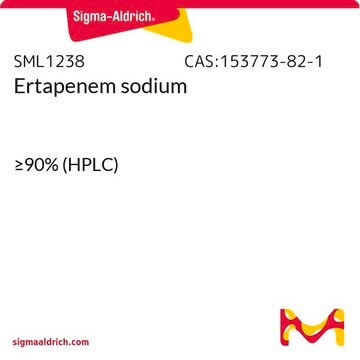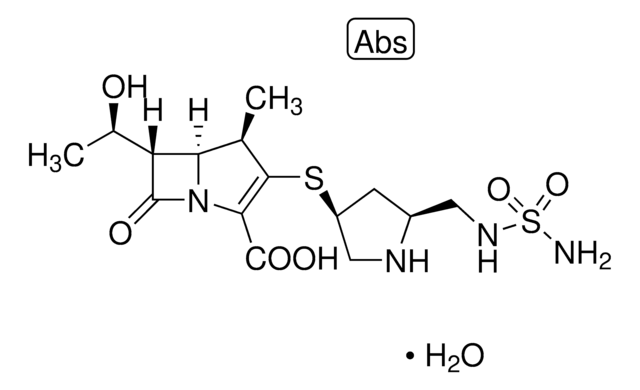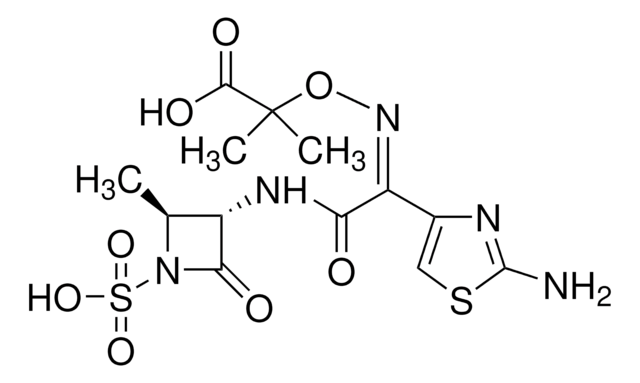1392454
USP
Meropenem
United States Pharmacopeia (USP) Reference Standard
Synonym(s):
Meropenem trihydrate, (1R,5S,6S)-2-[(3S,5S)-5-(dimethylaminocarbonyl)pyrrolidin-3-ylthio]-6-[(R)-1-hydroxyethyl]-1-methylcarbapen-2-em-3-carboxylic acid trihydrate
About This Item
Recommended Products
grade
pharmaceutical primary standard
API family
meropenem
manufacturer/tradename
USP
application(s)
pharmaceutical (small molecule)
format
neat
SMILES string
O.O.O.C[C@@H](O)[C@@H]1[C@H]2[C@@H](C)C(S[C@@H]3CN[C@@H](C3)C(=O)N(C)C)=C(N2C1=O)C(O)=O
InChI
1S/C17H25N3O5S.3H2O/c1-7-12-11(8(2)21)16(23)20(12)13(17(24)25)14(7)26-9-5-10(18-6-9)15(22)19(3)4;;;/h7-12,18,21H,5-6H2,1-4H3,(H,24,25);3*1H2/t7-,8-,9+,10+,11-,12-;;;/m1.../s1
InChI key
CTUAQTBUVLKNDJ-OBZXMJSBSA-N
Looking for similar products? Visit Product Comparison Guide
General description
Application
Biochem/physiol Actions
Analysis Note
Other Notes
related product
Signal Word
Danger
Hazard Statements
Precautionary Statements
Hazard Classifications
Resp. Sens. 1 - Skin Sens. 1
Storage Class Code
11 - Combustible Solids
WGK
WGK 3
Flash Point(F)
Not applicable
Flash Point(C)
Not applicable
Certificates of Analysis (COA)
Search for Certificates of Analysis (COA) by entering the products Lot/Batch Number. Lot and Batch Numbers can be found on a product’s label following the words ‘Lot’ or ‘Batch’.
Already Own This Product?
Find documentation for the products that you have recently purchased in the Document Library.
Customers Also Viewed
Our team of scientists has experience in all areas of research including Life Science, Material Science, Chemical Synthesis, Chromatography, Analytical and many others.
Contact Technical Service









